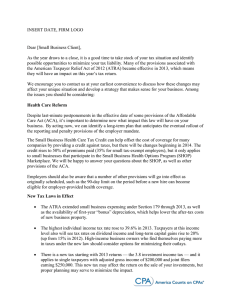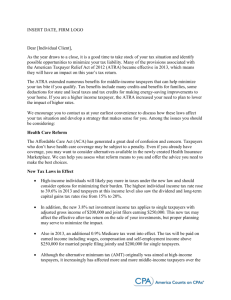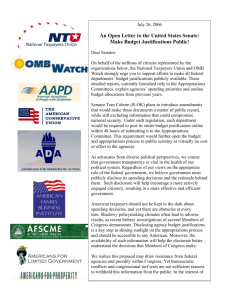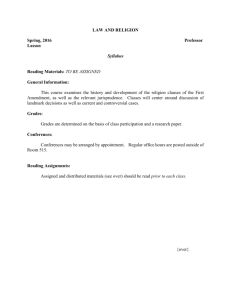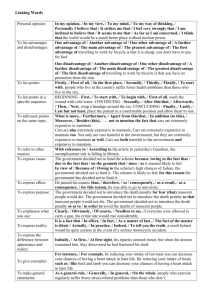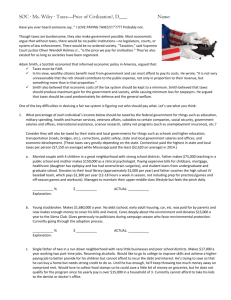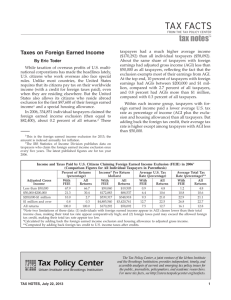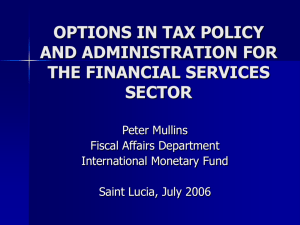March XX, 2012 The Honorable Subject: OPPOSITION TO AB 1963
advertisement
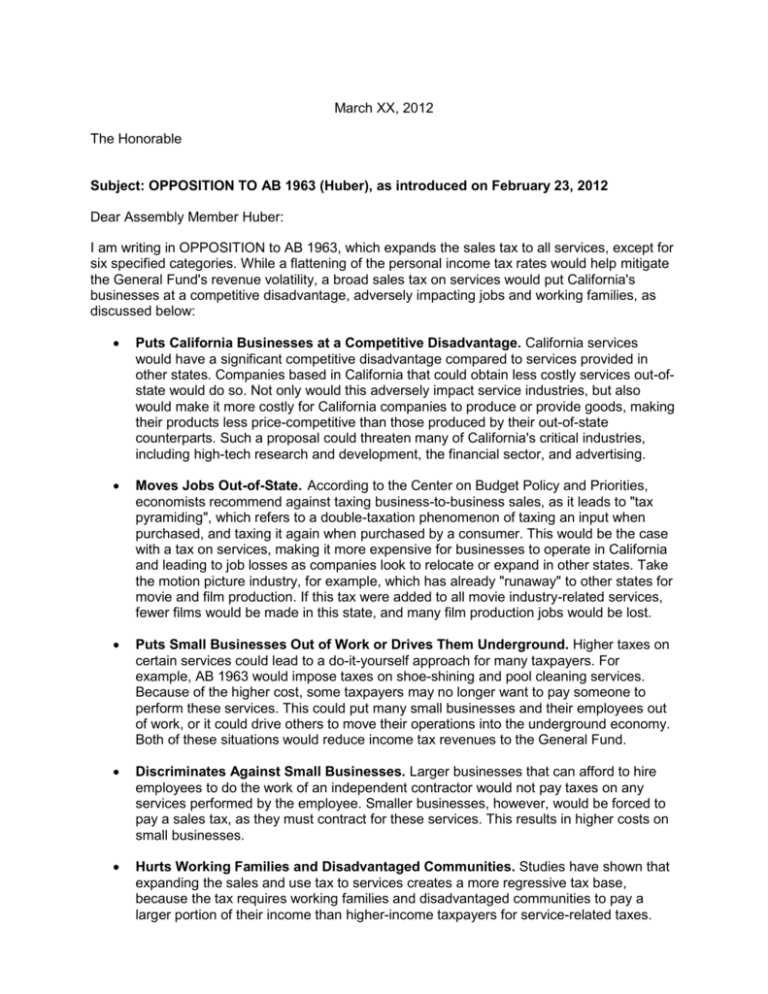
March XX, 2012 The Honorable Subject: OPPOSITION TO AB 1963 (Huber), as introduced on February 23, 2012 Dear Assembly Member Huber: I am writing in OPPOSITION to AB 1963, which expands the sales tax to all services, except for six specified categories. While a flattening of the personal income tax rates would help mitigate the General Fund's revenue volatility, a broad sales tax on services would put California's businesses at a competitive disadvantage, adversely impacting jobs and working families, as discussed below: Puts California Businesses at a Competitive Disadvantage. California services would have a significant competitive disadvantage compared to services provided in other states. Companies based in California that could obtain less costly services out-ofstate would do so. Not only would this adversely impact service industries, but also would make it more costly for California companies to produce or provide goods, making their products less price-competitive than those produced by their out-of-state counterparts. Such a proposal could threaten many of California's critical industries, including high-tech research and development, the financial sector, and advertising. Moves Jobs Out-of-State. According to the Center on Budget Policy and Priorities, economists recommend against taxing business-to-business sales, as it leads to "tax pyramiding", which refers to a double-taxation phenomenon of taxing an input when purchased, and taxing it again when purchased by a consumer. This would be the case with a tax on services, making it more expensive for businesses to operate in California and leading to job losses as companies look to relocate or expand in other states. Take the motion picture industry, for example, which has already "runaway" to other states for movie and film production. If this tax were added to all movie industry-related services, fewer films would be made in this state, and many film production jobs would be lost. Puts Small Businesses Out of Work or Drives Them Underground. Higher taxes on certain services could lead to a do-it-yourself approach for many taxpayers. For example, AB 1963 would impose taxes on shoe-shining and pool cleaning services. Because of the higher cost, some taxpayers may no longer want to pay someone to perform these services. This could put many small businesses and their employees out of work, or it could drive others to move their operations into the underground economy. Both of these situations would reduce income tax revenues to the General Fund. Discriminates Against Small Businesses. Larger businesses that can afford to hire employees to do the work of an independent contractor would not pay taxes on any services performed by the employee. Smaller businesses, however, would be forced to pay a sales tax, as they must contract for these services. This results in higher costs on small businesses. Hurts Working Families and Disadvantaged Communities. Studies have shown that expanding the sales and use tax to services creates a more regressive tax base, because the tax requires working families and disadvantaged communities to pay a larger portion of their income than higher-income taxpayers for service-related taxes. This bill runs counter to the basic policy principle that taxes should be based on an individual's ability to pay. When taxes are imposed on services, many families are left struggling to pay for their basic needs. Picks Winners and Losers. AB 1963 would determine which service industries should be exempt from taxes and which should be taxed – essentially putting some services at a competitive disadvantage over others. By making such determinations, this bill creates winners and losers. Government ought not to impose tax policies that benefit one industry to the detriment of another. Creates Extensive Administrative Problems. Imposing a sales tax on services would lead to extensive administrative problems. The Board of Equalization would have to identify and register myriad new businesses, many of which are unfamiliar with sales and use tax reporting and remittance requirements. In addition, auditing a serviceoriented business would be difficult and disruptive, because the Board would have to determine where a particular service was performed (if such a determination is even possible). A sales and use tax on services would place many law-abiding taxpayers in a no-win situation. For the forgoing reasons, I oppose this legislation. Sincerely, cc: Members, Assembly Revenue and Taxation Committee


